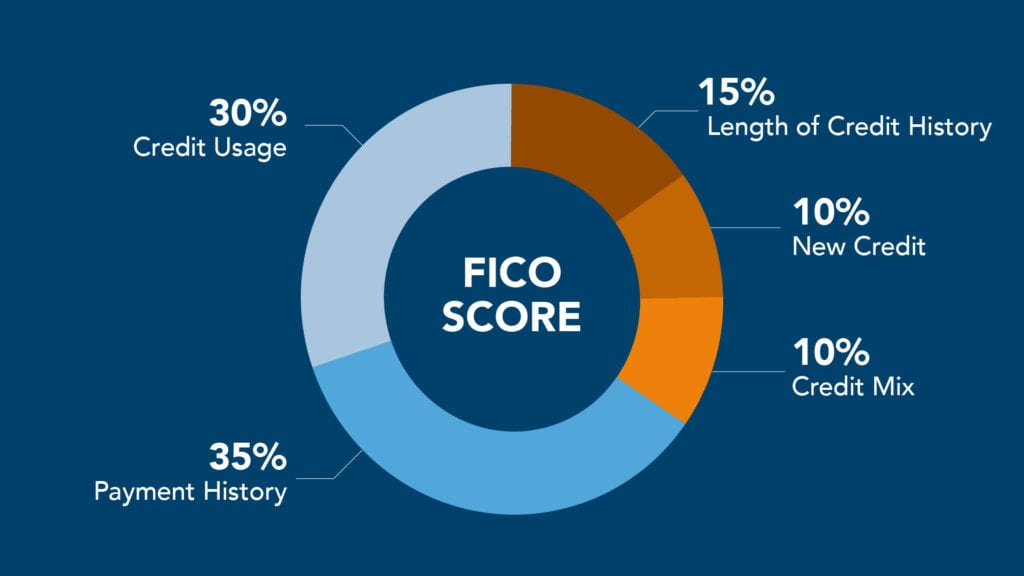At this point, it's only a matter of time before your favorite travel rewards credit card undergoes … enhancements. What do I mean by that?
In most cases, it means an increase in annual fees, a reduction in benefits – or both. Sometimes, we get lucky, though, and the enhancements are actually a good thing.
For instance, back in 2018 Amex changed up the look of the *amex gold card* with a spiffy new design and added benefits to boot. These changes included an increase in rewards earnings and added monthly statement credits – all for a minor bump to the annual fee. It's purely subjective, but in that case, I think Amex knocked it out of the park with these changes and the card actually did get better.
But more often than not, enhancements lead to travelers paying more and getting less from their credit cards.
This is especially true as of late, with Amex making a no-notice devaluation to its ultra-premium, *amex platinum card*, followed by changes to its portfolio of Delta co-branded cards, making it harder to earn a welcome offer. Not to mention Delta taking away perks like airline lounge access and an easier path towards status for some of those same cardholders, leaving many travelers wondering whether it's time to break up with their cards in favor of something new.
Read more: Delta Makes Big, Mostly Bad, Changes to SkyMiles Program
No matter the reason: When the benefits your card provides, no longer outweigh the hefty annual fee, your first impulse might be to cancel a credit card in order to avoid shelling out unnecessary cash.
Take our advice: Not so fast.
Perhaps that's the right decision given your situation. But there are some important questions you should first ask yourself before canceling the card and chopping it up for good.
Read more: What the Latest Amex Platinum Changes Mean for You & Your Wallet
Is There a Retention Offer?
Before you get too far down the path of canceling a credit card, it's in your best interest to call or send an online message to the card-issuing bank to see if there are any offers to keep the card open. These are called retention offers.
Annual fees are big business for the banks – and their shareholders. Acquiring new customers is the name of the game for these banks and the primary reason why we see such big welcome offers on many of the top travel rewards credit cards. Because of that, they may be willing to provide temporary annual fee relief, or even give you a big points bonus just for keeping the card open.
For example, we've recently heard from readers who were given 25,000 to as much as 50,000 American Express Membership Rewards points as a retention offer for keeping their Amex Platinum cards open for another year.
If that's the case, it could make the decision to keep your card open for another year a no-brainer.
At the end of the day, it never hurts to ask. Worst case scenario, there are no retention offers attached to your account and that could make your choice to cancel all the more clear. But not before moving on to the next question…
Read more: Get More Out of Renewing Your Credit Card With a Retention Offer
Have You Weighed the Card's Benefits?
The premium travel benefits may be useless for now, but there are other perks to consider.
Some credit cards may be worth keeping open just for the bonus points you’ll get on your everyday spending or travel purchases. The *chase sapphire reserve*‘s 3x Ultimate Rewards points per dollar spent at restaurants and travel come to mind.
Or take the Amex Gold Card: It earns 4x Membership Rewards points at U.S. supermarkets (up to $25,000 spent each year), 4x Membership Rewards points at restaurants worldwide, and 3x Membership Rewards points on flights booked directly with the airline or through Amex Travel.
While other cards may offer higher bonuses on different spending categories, no single credit card can outpace the Gold card for what comprises such a large portion of many consumers' monthly spending: Dining and groceries.
Below is a breakdown of a recent exercise I did to determine whether or not the Gold Card is still worth it's $250 annual fee.
For the sake of this analysis, I assumed each Membership Rewards point is worth one cent each – a very conservative valuation. And I also assumed that my family spends $100 a week at restaurants, on average.
- Weekly restaurant spend: $100
- X 52 Weeks in a year = $5,200
- X 4 Membership Rewards Points = 20,800
- X .01 (Membership Rewards Point Valuation) = $208
Total Benefit Value: $208
I also assumed for the sake of this analysis that my family spends on average $125 a week at U.S. supermarkets.
- Weekly Supermarket spend: $125
- X 52 Weeks in a year = $6,500
- X 4 Membership Rewards Points = 26,000
- X .01 (Membership Rewards Point Valuation) = $260
Total Benefit Value: $260
So just from these two benefits alone, I'm getting more value out of the card than I'm paying for the annual fee. Once I factor in the card's monthly dining credit and monthly Uber cash, the value proposition is even better.
Running the numbers like this made my decision to keep the card open a very easy one. And it's a good example of why we always suggest doing the math before ruling out cards with larger annual fees.
Read next: Is the Amex Gold Card Worth the $250 Annual Fee?
Will I Lose My Points if I Cancel a Credit Card?
It’s a question that comes up for everybody who has ever opened a travel rewards credit card: “What happens to my points and miles after I close a credit card?”
The answer? It depends. Exactly what happens to your points and miles depends on the specific credit card, and which airline, hotel, or points program it’s associated with.
If you’re closing a co-branded card – a card tied to a certain airline or hotel like Delta, American Airlines, or Hilton – your points should be safe. Once the card-issuing bank deposits the points into your corresponding loyalty account, such as Delta SkyMiles or Marriott Bonvoy, they cannot claw the points back after you decide to close the credit card. They are yours to keep until you use them or they expire.
But if the card in question is issued directly from a bank like Chase, American Express, or Citi, you will need to have a plan for your points before you cancel. This includes, but isn’t limited to, some of the most popular travel cards like the *chase sapphire preferred*, *capital one venture card*, and *amex platinum card*.
If you decide to cancel one of these cards that earn transferable points, and you still have points in your account, you will forfeit any and all remaining points in your account. The exception to this rule is that as long as you still have a card open that earns the same points, your points balance should be safe.
For example, if you hold both the American Express Platinum and American Express Gold cards and decide to cancel the Gold card, you will not forfeit any points because you still have a card open that earns Amex Membership Rewards points with the Amex Platinum.
Because of this, you'll want to make sure you use or transfer any flexible points before closing the account.
Read more: What Happens to Your Points When You Close a Card?
How Will This Impact My Credit Score?
It may seem counterintuitive, but a credit card with a zero balance is actually helping your credit score. Closing an otherwise inactive account can hurt your score in two big ways.
When you close a credit card, it decreases the amount of available credit you have to your name. Let’s say you’re thinking about closing an account with a credit limit of $5,000. The moment you do that, your total amount of available credit (across all banks) decreases.
That $5,000 in credit you had is suddenly gone, making any outstanding balances you have in other accounts eat up a bigger share of your total available credit. This will negatively impact your overall credit utilization, a factor that accounts for 30% of your overall credit score.
Closing an open line of credit will also impact the average age of your accounts, another significant factor in your credit score – making up 15% of the scoring equation. The longer it stays open, the higher the average age of your accounts will be.
For these reasons, it might make sense to leave that empty account open – even when you’re not actively using it, as the age of the account and the extra available credit will help improve your credit score over time. But of course, your desire to close an account is unlikely to be based on your credit score and any hit you take from closing the card will be temporary.
If the card doesn't have an annual fee, there’s no reason to close the account whatsoever. This is helping your credit score with no out-of-pocket cost. And if there is an annual fee, you may want to inquire about a credit card product change.
Read our guide to understanding your credit score!
Can I Downgrade Instead?
If your credit card has an annual fee, and after all the considerations above you still wish to cancel, it might be worth seeing if you can downgrade or do what's called a credit card product change to a card with no annual fee. The benefit here is that the bank will view a product change as the same line of credit.
That means it won't impact your average age of accounts, and it won't impact your credit utilization ratio, as the credit will still be available on the new card.
Take for example the Delta SkyMiles suite of credit cards. They have card options at several different annual fee price points. If you hold the $550 a year *delta reserve card*, instead of canceling it, you could product change it to the no annual fee *delta blue*.
You would, of course, lose all the benefits associated with the Reserve card. But you would no longer have an annual fee and in the process, keep your average age of credit accounts intact, and your credit utilization ratio would remain unchanged.
Not all cards will be eligible for a product change, but it's yet another option to consider before you close your credit card account outright.
Bottom Line
It's easy to get frustrated by the bank's, seemingly constant, customer-unfriendly credit card changes. But before you cancel a credit card, make sure to do some mental math and ask yourself the questions highlighted above.
There are many situations in which closing a card is to your advantage. But after giving it some thought, there are also plenty of times when it'll make sense to keep the card account open – at least for another year.







can I redeem my American air miles for something other than air travel?
can I redeem my American air miles for something other than air travel?
Hi, you’re the expert, however respectfully, I believe AMEX Everyday card fully allows points to be transferred to numerous airlines, I check regularly since the occassionally have bonus transfer offers, and currently they are waiving the transfer fee.
Hi Douglas. Thanks for pointing that out. You’re correct. It looks like both the Everyday and Everyday Preferred card allow full airline transfers now.
My wife and I both have the CSR. My annual fee was in December and her fee is up in May. I am looking to product change her to the CFU, but if she closes and opens a new account she could get the $200 SUB. She doesn’t want any AFs because I have CSR and Aspire already and our travel will be very limited during this corona time. Do we take a hit against credit score for $200?
Great question Adam. At the end of the day, the hit for closing will not be much and it will be temporary. Especially if the account hasn’t been open for a long time. This situation makes sense to close and reapply for the Freedom Unlimited.
Just make sure to transfer her points to your account before she cancels or you will lose them.
Is there a card you can downgrade an Amex Platinum to and retain your points?
Hey Laurie! You can downgrade to any of the other Amex Membership Rewards earning cards like the Amex Green, Gold, and EveryDay Preferred. Those cards still have annual fees associated with them, but that is an option.
The Amex Everyday card is another option that doesn’t have an annual fee, but you won’t have as much flexibility with the points. The biggest thing is you wouldn’t be able to transfer points to partner airlines.
Hi, you’re the expert, however respectfully, I believe AMEX Everyday card fully allows points to be transferred to numerous airlines, I check regularly since the occassionally have bonus transfer offers, and currently they are waiving the transfer fee.